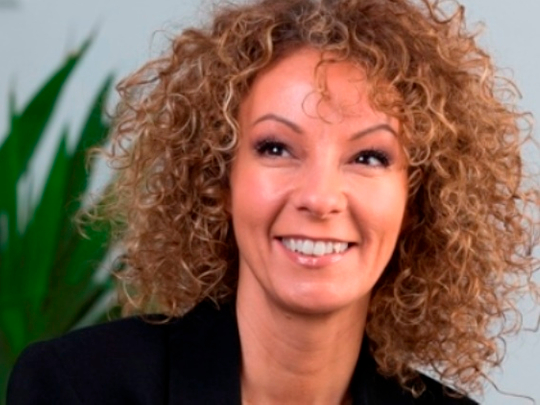
Linda Berlot is a successful relationship and life coach. She’s also a survivor of breast cancer. Italian by birth, Berlot settled in the UAE in 2004 and was first diagnosed with breast cancer. Now on the organizing committee of Dubai-based non-profit organization Brest Friends, which provides help, support and information to breast cancer patients and survivors, Berlot tells GN Focus how she fought breast cancer and what advice she can give to other women on the different steps along the path to psychological healing.
1. Dealing with shock
Breast cancer impacts everyone differently, but the one thing that most women will agree on is that their initial response to the diagnosis was shock.
Though breast cancer has been in my family for years — my mom was diagnosed when she was 50 and fought it for 15 years, while my sister was diagnosed when she was only 35 — it was only in the last year of my mom’s life that I felt the need to check myself more than the required once a year.
I was extremely lucky that my doctors listened to me, because very soon after a mammogram we found breast cancer in my ducts. It was still in the very early stages and had not yet formed a lump, which means I wouldn’t have discovered it with a self-exam. My initial reaction was shock; it was hard to comprehend or believe.
2. Managing fear
After being diagnosed with cancer, my next reaction was fear. I thought of all the worst things that could happen — particularly because I hadn’t been fully diagnosed at this stage and didn’t yet know what course of treatment would be prescribed.
So getting all the information is crucial to overcoming fear; I went into a right-let’s-tackle-this mode. Fear has been part of my journey from the day I was diagnosed to today. I was afraid that this disease would take me and I would die — and I still am.
As time passes, you learn to manage this fear of dying and the fear of reoccurrence, which never goes away.
However, in my case, and I know many other women who have done the same — I have used it to motivate me to live and experience my life to the fullest. I think it’s a gift to come face to face with your own mortality. You are no longer complacent about your life; you no longer take it for granted because you know it could change at any moment, and this knowledge makes you live very much in the present — you savour each moment and live with gratitude for what you have.
There’s still fear though, and it takes energy to keep at bay. If not managed it can lead to depression and fatigue. It’s important to monitor and find ways to manage the fear, either by talking about it, exercising or doing activities that you love and help you live in the present.
3. Overcoming depression and fatigue
I found that our body is an incredible ally — it will only allow you to deal with one thing at a time. So when you have your operation and are dealing with the physical aspect of the disease, that’s what you’re focusing on. Later when your body has healed, you can deal with the emotional aspects.
I think as women we do not give ourselves enough time to heal emotionally. When we feel physically well we want to get back to our lives as soon as possible, often as if nothing has happened. However, our bodies have undergone a great trauma and we need time to deal with the emotional aspect of this trauma. Often this emerges months after the treatment, in the form of fatigue or depression.
I remember going back to work seven weeks after my operation for 12 hour days, and two months later, my body – my friend — gave way again, and I had to take six weeks off again and really come to terms with all that had happened.
I feel that as women, we are so often used to coping that we will cope under the hardest conditions. Having a disease such as breast cancer sometimes brings the awareness that balance and taking care of ourselves as much as we take care of others is as important as coping.
4. Finding support
After having all my operations in Dubai, I can testify to world-class care. But learning to identify what you need in terms of support, and being able to ask for help is often the hardest thing of all.
After a while, I joined the cancer support group Brest Friends, a non-profit that runs monthly support meetings for breast cancer survivors and patients. Here I was able to meet other women who had experienced a similar journey and I was able to share my feelings and emotions with them. I found this very helpful, particularly because with this group of ladies I was able to see the fun side of things and laugh, something I had not been able to do with my friends and family who were understandably too worried to find any humour in the situation.
Cancer support groups are great sources of information. They provide coping skills, comfort and emotional support not only to breast cancer patients but their families too.












